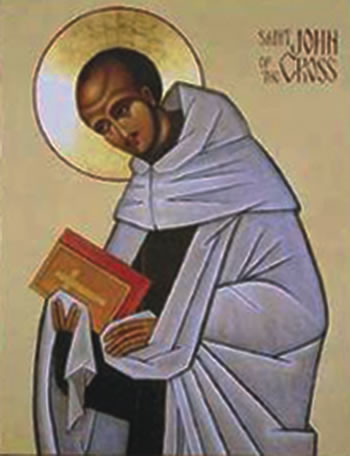Where are you God? Oh, there you are
© Bill Farrelly
ONCE upon a time I was walking through the bush near where we lived and I heard a child’s voice. I followed the sound trying to understand what the child was saying, then I spotted the boy perched on a rock. I realised as I got closer why his words had made no sense: he was repeating the alphabet. “Why are you saying your ABCs so many times?” I asked him. The boy replied, “I’m saying my prayers.” I laughed and I said, “Prayers? All I hear is the alphabet.” Patiently, the child explaind, “Well, I don’t know all the words, so I give God the letters. God knows what I’m trying to say.”
This story, because it is just a story – though, who knows? – reminded me again of how precious real faith is.
Last month I wrote of the difficulty I often have in believing and trusting in God – of letting go completely and trying to do God’s will. And because I am so challenged by this, I decided to continue the theme this month.
 I think I have mentioned in passing a book called The Impact of God, by Iain Matthew. In the past few years it has been one of my most important supports in some of my blackest moments.
I think I have mentioned in passing a book called The Impact of God, by Iain Matthew. In the past few years it has been one of my most important supports in some of my blackest moments.
Too often I forget what I have read – even if only very recently – but I decided a few years ago to stop fretting about that and to simply accept that that was the way things were.
As a consequence I find myself re-reading books such as this one over and over and – blessedly – finding solace over and over.
I rarely struggle nowadays to get back to sleep at 2 or 3 in the morning even after awaking from a disturbing dream or simply feeling sad or lonely. Instead, I pick up The Impact of God where I last left off and always, yes, always, find comfort and peace and very soon afterwards the ability to return to my slumber.
The subtitle of the book is Soundings from St John of the Cross. Now, I am only familiar with St John through this book. Like most poetry, I am sad to say, I struggle with his poems and am sure I would give up without an interpreter like Iain Matthew.
The essence of the book is this: when God seems most absent in my life, it is then that He is most present. Here’s a sampling from what I read this morning:
Trusting in God may in practice be experienced as risking the loss of all else. We may have to live as if He sustained us, in order to discover that He does sustain us.
Living “as if” is wonderful advice. Not easy, though. I remember a few years ago, when I was feeling lonely and thinking to myself “Wouldn’t it be great if ... ” it occurred to me that I would be better thinking “Won’t it be great when ...” In other words, I was taking a more positive stance and it is amazing how, when you think positively, outcomes are more likely to be positive – or, failing that, the ability to cope with an unwelcome outcome is enhanced.
Another extract that has had great meaning for me deals with those black moments in life when I feel completely and utterly alone and when, sometimes, I feel that it is almost as if God is punishing me for something I haven’t done.
John talks about this darkness as suffering with the accent on bewilderment. The book goes on to say: ... healing comes particularly in situations that take us our of our own control, in the kind of pain which is bewildering ...
These words have given me great peace because I have sometimes felt completely bewildered. Nothing in my suffering seems to have made sense and yet, my interpretation is that that is the time when God’s grace is most present – provided that I am open to it. In other words, from bewilderment comes – or may come – enlightenment.
When I hear or read a story such as the one with which I began this musing, I understand what God meant when he said “Unless you become as a little child ...” That little boy, like so many children – if not all – intuitively knew that he did not have to be articulate to make contact with God. He just had to believe, to trust that God would understand what he wanted to say.
I am sure faith will continue to challenge me for the rest of my life, but I know from experience that the more I do trust God, the more at peace I am.
Incidentally, the friend who recommended I read this book, knowing at that time that I was feeling very abandoned, advised me to begin with chapters 12 and 13. It proved to be sound advice.


 Entries(RSS)
Entries(RSS)